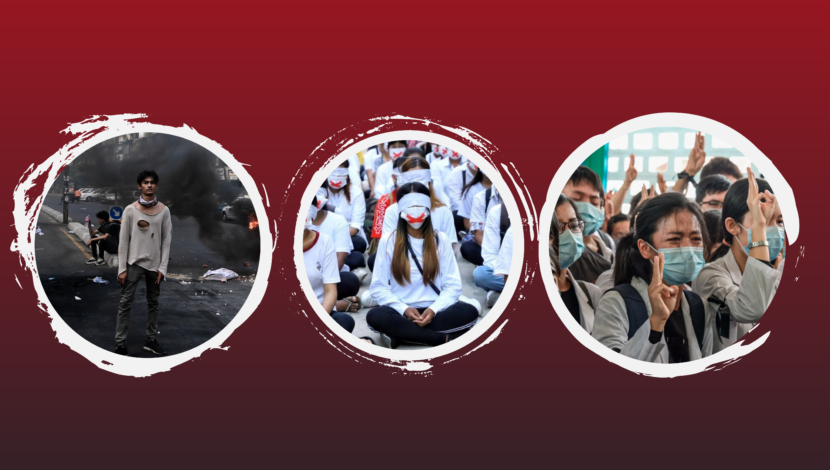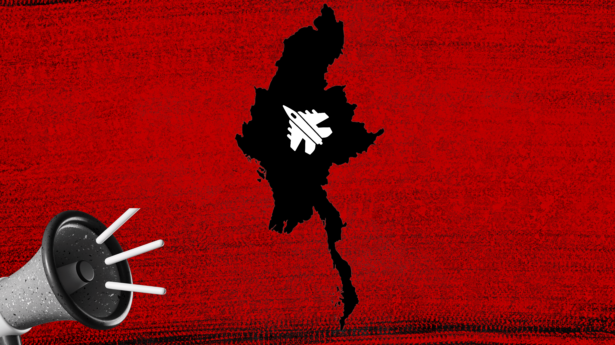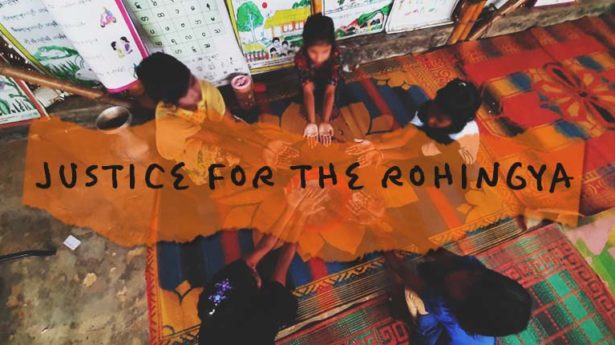The Unitarian Universalist Service Committee advances human rights through grassroots collaborations.
The Rohingya Genocide is Ongoing

By UUSC Staff on December 9, 2022
The United Nations’ annual World Genocide Day is supposed to be a time when all governments commemorate and recognize the dignity of victims of genocide—and work to prevent this crime from ever happening again. But in the Southeast Asian country of Burma (Myanmar), the repressive military junta appears poised to double down on the genocide they have inflicted since 2017 on the Rohingya Muslim ethnic minority—while also continuing their broader campaign of terror against the country’s entire civilian population.
On December 2—one week before the annual international day of recognition to prevent genocide—UUSC’s partners the Burmese Rohingya Organization UK (BROUK) issued a groundbreaking report warning that the military is still committing genocide against the Rohingya people. Rohingya living inside Burma are denied basic rights and freedoms, and their long-term safety is in jeopardy. The report even finds the military could be gearing up for a fresh wave of atrocities that would resemble the campaign of murder, arson, and rape by which they drove nearly a million Rohingya from the country in the summer of 2017.
For roughly a decade now, the Burmese military has confined internally-displaced Rohingya to camps where they are denied freedom of movement and often forbidden from getting jobs or participating in broader society. This policy of mass detention—which international observers define as the crime of apartheid—continues to this day, and shows no signs of abating. In addition to the more than 100,000 Rohingya people still held in these open-air prisons, nearly a million Rohingya refugees also live across the border in Bangladesh, where they were forced to escape the military’s genocidal atrocities in 2017. Rohingya in these camps face dire conditions with little hope of a safe, voluntary repatriation.
In the 2017 campaign that forced these refugees to leave, the Burmese military took advantage of local violence to launch genocidal “clearance operations’’ aimed at eliminating and destroying the Rohingya people. BROUK’s new report warns that today’s conditions bear a frightening resemblance to these earlier circumstances. Once again, the junta is using the pretext of local armed conflict to launch unprovoked attacks against Rohingya civilians. In one emblematic incident in September, a military-fired artillery shell landed in a Rohingya village and killed a 7-year-old child. The military then attacked Rohingya villagers as they tried to flee the wreckage, stabbing at least one person who was seeking safety. The junta also murdered more than seven people, including children, over the summer, when they opened fire on a boat full of Rohingya refugees returning from Bangladesh (underlining even further the impossibility of Rohingya refugees safely returning to their home country any time soon).
These methods of lawless aggression against defenseless civilians are all too reminiscent of the military’s earlier atrocities against the Rohingya in 2017. They also have become a routine feature of the junta’s war against the entire Burmese civilian population, who have resisted the military’s unlawful seizure of power since February 2021. Faced with a citizenry intent on reasserting their democratic rights and removing the illegitimate junta from power, the Burmese military has responded by attacking those least able to defend themselves: burning villages to the ground and massacring civilians. By credible estimates, the military has so far incinerated more than 26,000 homes and killed thousands of people. While precise estimates are hard to obtain, nearly 28,000 people are believed to have died from political violence since the coup.
The international community is not powerless to prevent these atrocities. The parties to the UN Genocide Convention—including the United States—are pledged to help halt the crime of genocide and seek accountability for its perpetrators. Yet many are still failing to take common sense steps that could end the killing and bring the junta to justice. Specifically, the U.S. government should impose sanctions on the oil and gas conglomerates the Burmese military uses to fund its atrocities, as well as on jet fuel sales that enable the junta’s aircraft to bomb and incinerate villages. In keeping with these goals, they should also enact a long-overdue sanctions bill—the BURMA Act—as we and our partners have advocated for years.
The U.S. and other global powers should also fully back legal proceedings in international venues to hold the Burmese military accountable. The UN’s International Court of Justice is already hearing a case against the Burmese military about the ongoing Rohingya genocide, and has issued preliminary orders blocking the junta from destroying evidence, committing further violence, or otherwise compounding their crimes and obstructing justice while the case proceeds. The junta is supposed to provide regular reports on their compliance with these orders; but when the most recent report was due on November 23, they were silent. The international tribunal and the junta made no indication that they submitted the report on time, and the junta’s actions on the ground—including their ongoing violence against Rohingya civilians—indicate they are not obeying the provisional measures in practice.
BROUK rightly looks to the military’s apparent lack of compliance with the orders of international courts, their pattern of atrocities in Rakhine state and throughout the country, and their ongoing policies of apartheid against internally-displaced Rohingya, as worrying signs the junta has no intention of altering their behavior or making reparations for the past. The genocide against the Rohingya is ongoing, and the junta in Burma has not changed its spots since it inflicted its largest campaign of terror and violence against the Rohingya in 2017.
The international community will make no progress if they simply wait and hope for the situation to improve on its own. If they are serious about preventing the crime of genocide and commemorating its victims—as World Genocide Day bids them to do—they must impose overdue sanctions. And they should support the international legal processes already underway to bring Burma’s murderous generals to justice.
Image Credit: UUSC

